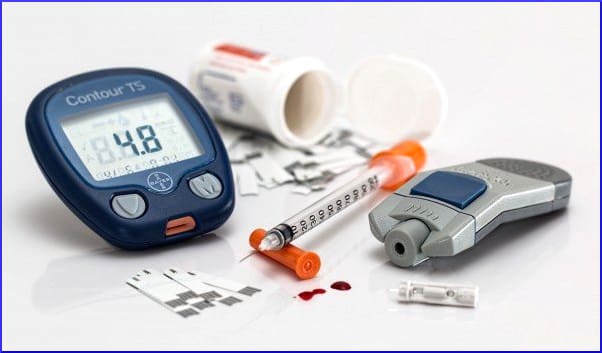
A growing number of children and teens live with type 2 diabetes. In 1990, the Centers for Disease Control received zero reports of newly diagnosed pediatric type 2 diabetes cases. In 2012, there were 5,300 new ones. Experts have linked this with the dramatic increase, over the same time span, of childhood obesity. Prior to around 1990 there were, of course, a certain number of obese kids, but the strange thing is, they tended to take much longer to develop into diabetics.
To put the icing on the cake, the average pediatric type 2 patient is a 13-year-old girl, probably either African American, Hispanic, Asian, or Native American. So we’re talking about a young person with already three strikes against her — female, non-white, and going through all the normal trauma of adolescence. Who needs another problem?
Today, one thing these kids do have going for them is social media. With outlets like Dr. Pretlow’s Weigh2Rock website, they can learn what their age-mates are going through, talk with each other, assuage their loneliness, and feel less grotesque.
Smells like teen spirit
The whole thing is also galling, notes journalist Gillian Mohney, because a young teen is destined to start pulling away from parental control and influence. Instead of saying “Leave me alone,” a chronically ill kid has to be taken to the doctor, supervised at home, and continually warned to change her ways and stay on the straight and narrow.
The rebellious teen spirit kicks in, and leads to things like a kid omitting her medication because she won’t be bossed around. And she has psychosocial issues, unwilling to be categorized by her peers as a gimp. Who wants any of that?
Professor of Pediatrics Dr. Jane Lynch is chairperson of the American Academy of Pediatrics section on endocrinology. To what does she attribute the marked increase in such cases? Gestational diabetes, changes in food processing, and sedentary kids.
That last situation is exacerbated by the fact that many of these young people can’t afford to get involved in sports or join gyms, and live in neighborhoods where it simply isn’t safe to play outside, or ride bikes to school. There are also other contributing factors, like air pollution, which could play a part in as many as 150,000 diabetes cases yearly.
And yet more problems
Also, puberty brings a large increase in the body’s production of growth hormone, which has the effect of making the body less sensitive to insulin. Because of internal chemistry gone haywire (and maybe some non-compliance), the adolescent’s blood sugar levels tend to be volatile. A teen’s pancreatic beta cells deteriorate at four times the rate of an adult’s.
Once diagnosed, they tend to need to go on insulin within a couple of years, unlike adults. Teens are starting to suffer kidney damage within three years of diagnosis. They are more likely to advance quickly into complications, also unlike adults, who “can be fairly asymptomatic for 10 to 12 years since they’re diagnosed,” according to Dr. Lynch.
Also, there are not as many treatment options — for instance, only two medications are approved for people under 18, as opposed to more than 20 for adults. But hold on, it gets worse:
A new study published last month in Diabetes Care also found that aggressive treatment with a type of insulin and metformin or just metformin alone didn’t stop the progression of the disease for many of these younger patients. While adults can benefit from intense lifestyle intervention, this has been found to be ineffective in turning around most cases of type 2 diabetes in children…
And from there it just goes downhill and into kidney failure, heart disease, nerve damage, hypertension, vascular damage, eye damage, and so on. Kids who should be out rock climbing are sitting around in dialysis parlors. A lot of these kids’ medical bills are paid by government programs they age out of at 21, so if they are not able to slow down the diabetes by then, the prognosis looks grim. And God forbid they become teen pregnancy statistics, because the potential ultra-serious results include miscarriage, stillbirth, and birth defects.
But there is hope, if you call surgery and lifelong coping with its restrictions a good outcome. Only a few years ago, bariatric surgery for young people was regarded as a very reluctant last resort. Now, when it often appears to be the only alternative to early death, many professionals who would have preferred to do otherwise have been recruited to the surgery bandwagon. And it cures nothing, only alleviates current misery, and buys time.
Your responses and feedback are welcome!
Source: “Generation Diabetes: Why the Youngest Type 2 Diabetes Patients Are the Sickest,” Healthline.com, 07/18/18
Photo on Visualhunt

 FAQs and Media Requests:
FAQs and Media Requests: 











